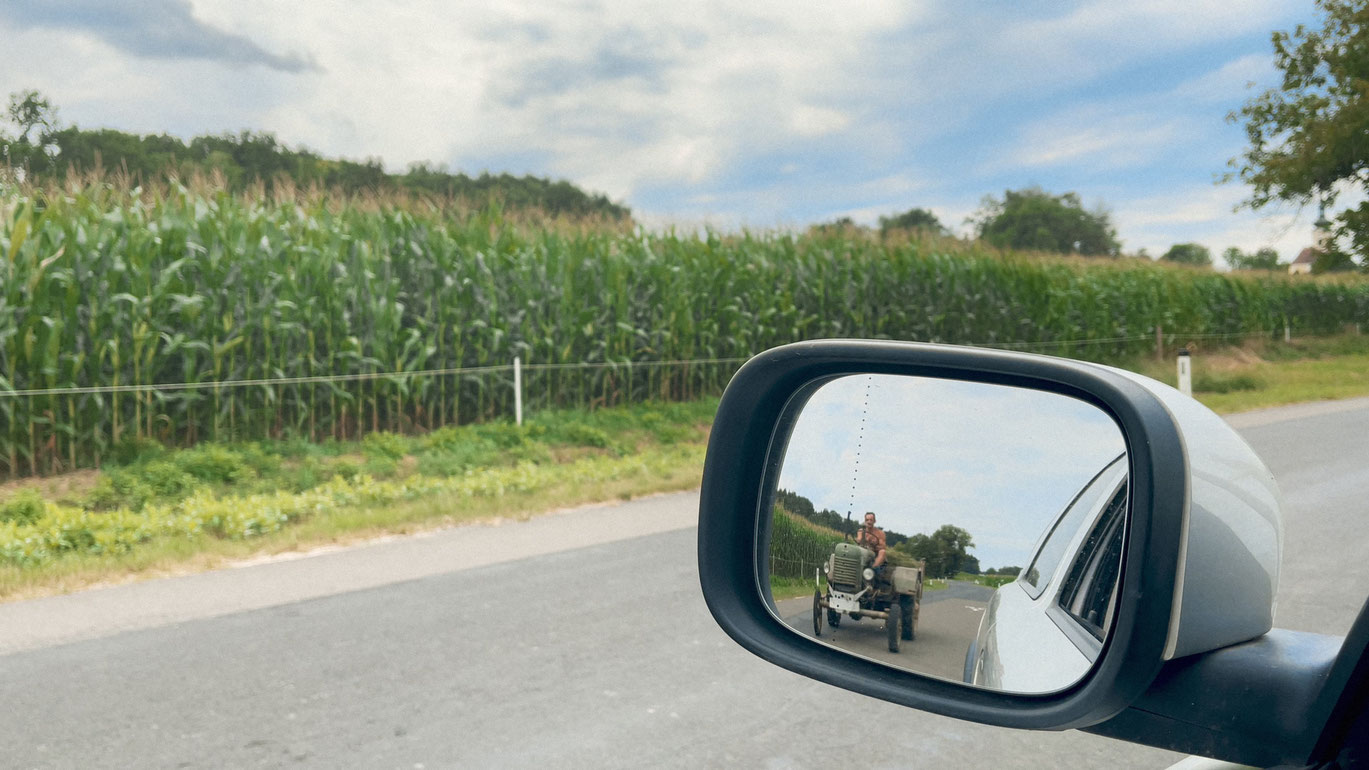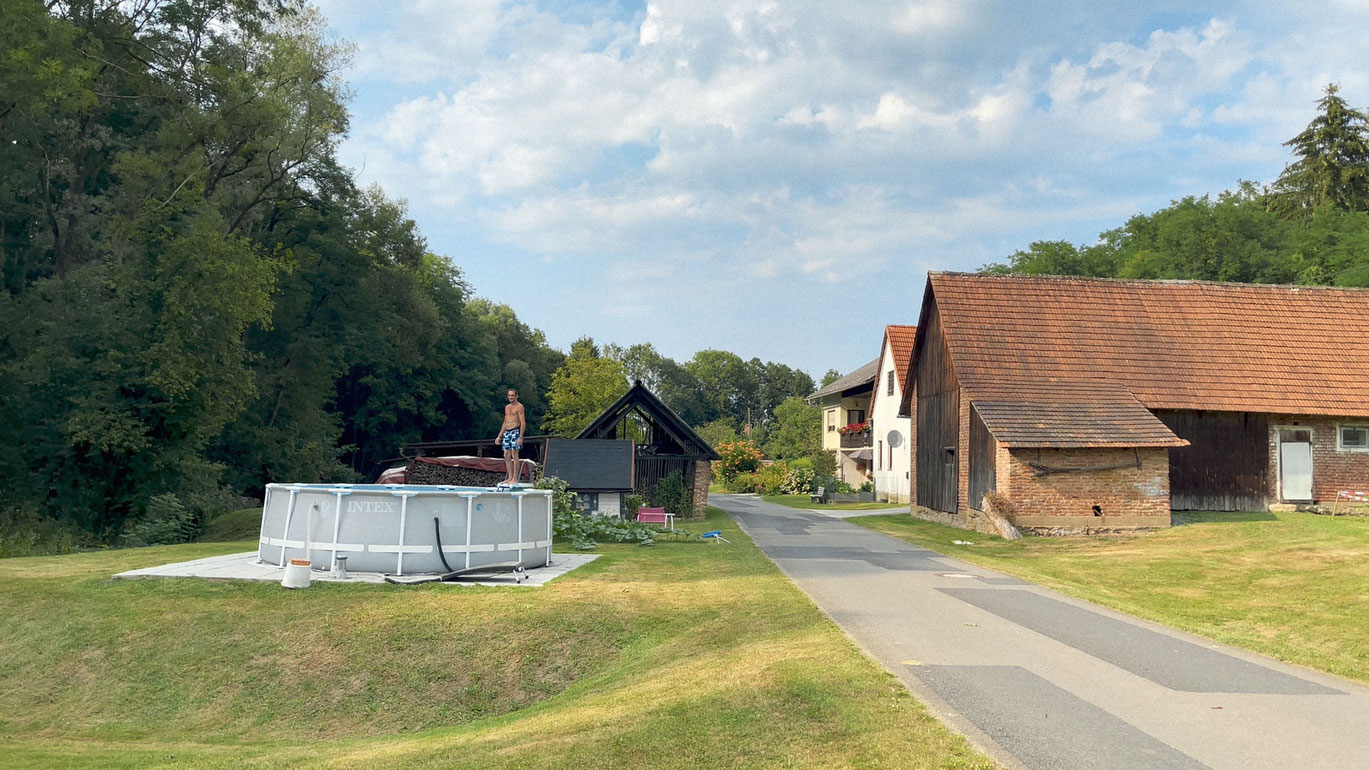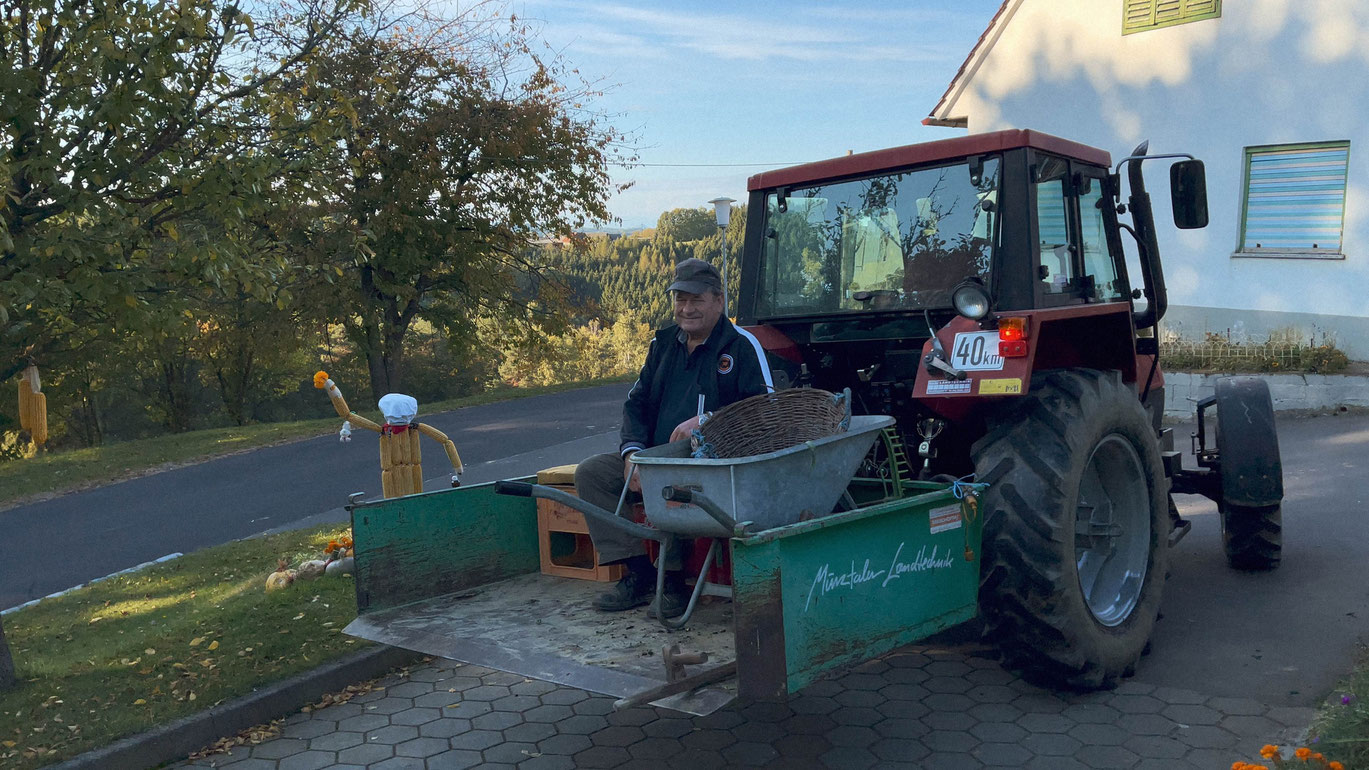When I Went to Visit the Boys
Director's Note
When I made my first film Scenes from my Marriage, I was teaching at the Academy of Media Arts in Cologne. I had used my phone to record scenes from my life as examples in order to talk to the students about the responsibility we have as documentary filmmakers when we "invade" other people's lives with the camera and use the material in our films. I wanted to experience this first-hand. In doing so, I overstretched myself and crossed my own boundaries. At the same time, it motivated me to dare to make another film.
I grew up in a female household, without a father. Men were a mystery to me for a long time. In Scenes from my Marriage, I looked at my husband and myself. With the film When I went to Visit the Boys I wanted to expand my "field of research". South of the Raab, where I had lived for several years, I was looking for men whose families had settled here for generations.
Filming was not only a new challenge for the protagonists, but also for me, as I encountered their everyday lives as a stranger. I wanted to get to know their way of life, entered into a personal dialogue with them and establish a relationship. My initial question was simple: How are you?
I filmed again with my mobile phone, without a team – moments in which thinking and reflecting becomes visible. Maybe that is what I'm looking for. (Katrin Schlösser)
We drive through southern Burgenland on a field research trip with the filmmaker to explore how men think and speak. Katrin Schloesser lived here awhile, got married and made the painfully beautiful film Szenen meiner Ehe (Scenes of My Marriage). During those years she noticed a number of things about the local men and their self-images, which she condenses into a mental map of Bubenland (“Boys’ Country”).
Schloesser meets men on site – both acquaintances and those with whom she has never exchanged a word before. She seeks conversation, but as different as these men are in terms of age and background, they all seem taciturn, at least at first glance. “It is what it is” or “It’s o.k., I guess” are the most common expressions in the repertoire of all of her interlocutors. This can be a way of stifling deeper reflections on failure and the pain of existence, but the visitor doesn’t let up. With a lot of humor, curiosity and, most importantly, a palpable basic sympathy, she manages to pull out of her “boys” things that probably have never been said, but without giving them the feeling of being caught off guard. In this respect, Katrin Schloesser is similar to Ruth Beckermann, who makes men speak in Mutzenbacher without presenting them as exhibits. What would be the point?
The open gaze of a stranger makes it easier to gain access where others would just want to get away. Schloesser also sees the beauty of this special region, likes to film in the light of the evening sun, dedicates enchanting scenes to cattle, and suspects that farm animals like Nelly, Glocke, and Henriette often fill emotional voids. When the pain of loss has been too great, the next animal is simply not given a name. That's one way of doing it: pragmatically. A life principle with an expiration date. Who knows whether someday the entire adventure playground of Bubenland will have also outlived its usefulness. But that’ll be the day. (Regina Schlagnitweit)
Besuch im Bubenland
2024
Austria
92 min



